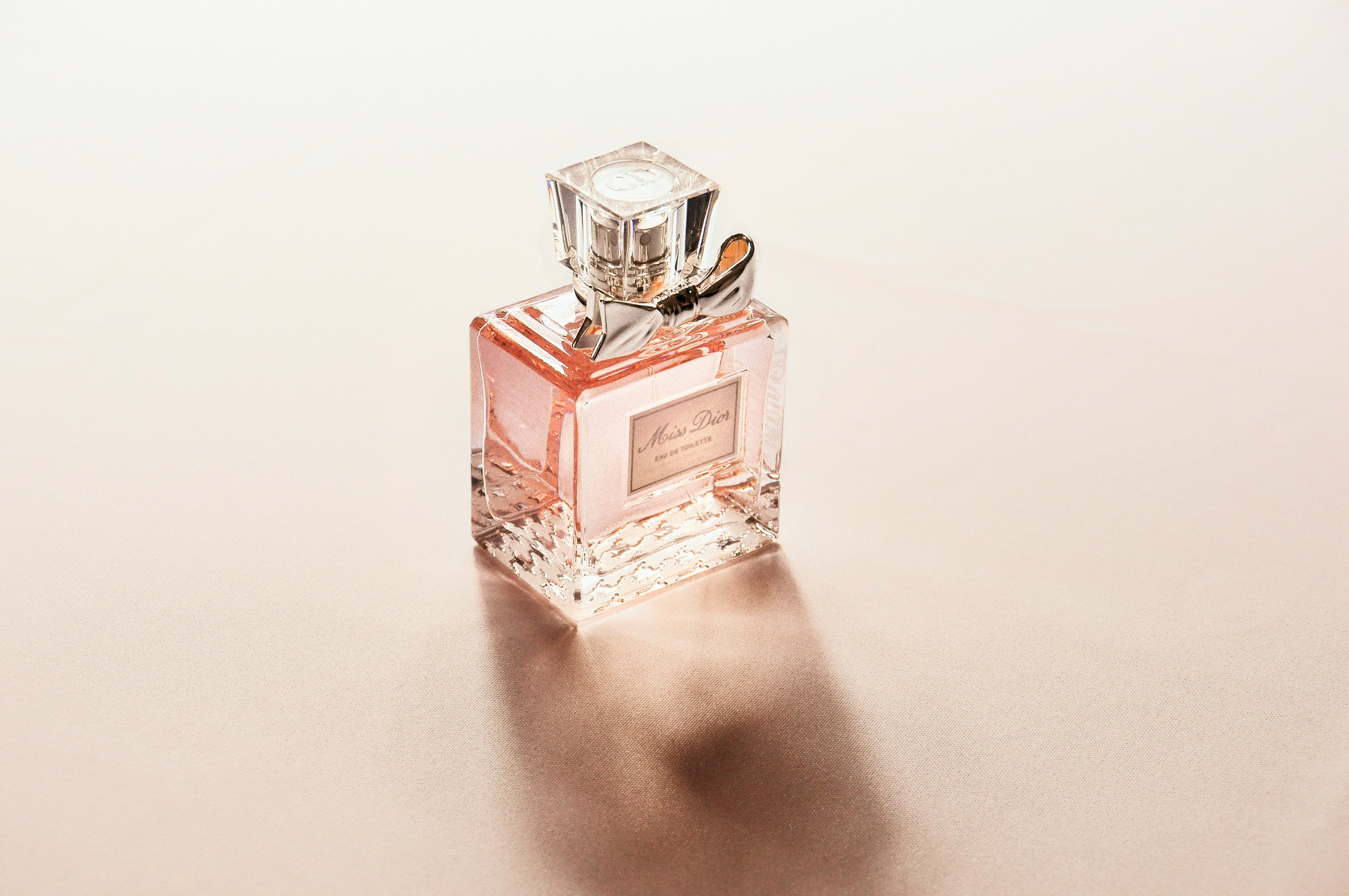A fragrance moves before you do. It travels a second ahead of your footsteps and greets the room with a tone that is not yet language. This is why perfume feels larger than its bottle. It changes the temperature of a moment, and it shifts you into a version of yourself that feels a little more focused or a little more open. When people ask what perfume does spiritually, they are asking about this shift. They are asking how something invisible can steady the mind, soften the ego, and create a small sense of ceremony inside an ordinary day.
Scent has always been part of spiritual life. Across cultures, people have burned resins, herbs, and woods to mark thresholds and to frame attention. Frankincense lifts into the air during prayer. Sandalwood sits in meditation halls. Champak and jasmine twine through festivals that honor life and light. The details vary by place, but the pattern is consistent. Fragrance is called in to say that this moment is not like other moments. That does not have to be grand. It can be small and domestic. A drop on the wrist before you write. A gentle mist on the collar before you visit your parents. The message is the same. It is time to arrive.
Perfume works with the nervous system in a way that feels like kindness. The nose routes information quickly to regions that hold memory and emotion. This swift path is why a single whiff of lemongrass can recall your grandmother’s kitchen or a seaside holiday from ten years ago. Memory does not appear as a list. It arrives as a feeling, and feeling can escort you into a quieter state where your attention is ready. Spiritual traditions have always respected attention. When your attention is steady, your values become actions rather than slogans. Perfume can support that steadiness because it suspends you for a second in the present. You notice the top note, then the heart, then the slow warmth at the base. In that noticing, your mind changes speed.
There is also a quality of humility in fragrance that suits spiritual work. You cannot hold a scent in your hand. You cannot make it obey a straight line. It blooms, it fades, it returns when you move. This reminds the body that control is not the only route to peace. Acceptance is a path as well. When you apply perfume and allow it to do what it does, you are practicing a form of letting go. This is not passive. It is an active consent to the way things are. Many of us need more of that when days are crowded with screens, schedules, and the illusion that perfect planning protects us from disappointment.
Perfume can teach presence through rhythm. Presence is easier when you arrive in the same way each time. It is why people light the same candle before meditation or chant the same simple phrase before sleep. If you choose a fragrance for a specific moment and repeat it over days and weeks, the body learns that this smell belongs to this intention. You do not need many bottles for this. You need one for focus, one for calming transitions, and perhaps one for celebration. When you keep it simple, your senses can map the territory. A soft iris and tea accord can become the scent of writing. A lavender and tonka blend can become the scent of gentle evenings. A bright neroli or yuzu can become the scent of joy that you save for events that matter to you. With repetition, the perfume becomes a key. You spray, and a door opens.
This rhythm carries another benefit. It lowers decision fatigue. So much energy is lost to small, repeated choices. Which shirt, which laptop wallpaper, which gym playlist. Perfume can be a place to practice restraint. Decide once for a season, then let the choice do the work. The simplicity feels spiritual because it is a refusal to be jerked around by novelty. It is a way of honoring your nervous system. Over time, the seasonality becomes a narrative. In humid heat, you might live in airy green florals that lift from the skin like a breeze along the Kelana Jaya line. When rains turn the air heavy in the evening, you might lean into powder, soft wood, and milk tea warmth. Your year now has scent chapters, and those chapters help you remember that change is natural, not threatening.
Perfume can also soften the edges between people. Spiritual life is not only private. It is shared through the way we treat one another. Strong, aggressive fragrance can claim space without permission. Gentle, intentional fragrance can invite closeness. The difference is obvious on a crowded LRT. Someone who wears a polite cloud that you only notice when you stand shoulder to shoulder is signaling care. That care becomes part of your spiritual practice because it respects the boundary of others. You are saying, I choose to smell like this for myself and I choose a volume that does not perform at your expense. This is hospitality in miniature.
The idea of aura is useful here. Aura is a way of describing the field of mood that surrounds you and spreads through others. You build an aura by repeating habits that polish your presence. Perfume can be a gentle tool in that process. Choose a scent that aligns with your values and you will act toward it. If you select something calm and honest, you are more likely to speak in a calm and honest tone. If you reach for something uplifting and clear, you are more likely to walk with that clarity. This is not superstition. It is congruence. The senses like harmony. When your scent, posture, and voice match, you look and feel trustworthy. Trustworthiness is a spiritual quality because it makes relationships safer.
Many people ask about alignment between natural and synthetic materials. The spiritual question beneath that is really about intention and impact. Natural materials carry stories from soil, leaf, resin, and flower. Synthetic molecules carry stories from labs that extend what nature began. Both can be mindful. Both can be careless. A spiritually grounded approach begins with curiosity about sourcing and ends with respect for your own body. If a formula feels gentle on your skin and does not trigger your sinuses, if it is made by people who speak clearly about where their materials come from, if you can use it slowly without waste, you are likely on solid ground. Spiritual practice cares about the unseen costs as much as the visible pleasure.
Ritual design brings all these threads together. A ritual is a small sequence with a clear beginning and end. It marks a transition and teaches your body what comes next. Consider a morning ritual for attention. You wake before your notifications, step onto the balcony, and breathe the cool air. You wash your face with plain water, press a few drops of oil into the skin, then apply a single spray of a light, green citrus to your collarbone. You sit for five minutes with a notebook and write one sentence about the day you intend to live. The perfume is not decoration. It is the bell that starts the practice. Later, when your day becomes messy, you catch a trace of that citrus and you remember your sentence. The ritual did its job.
Evening rituals can be simpler still. After dinner dishes dry on the rack, you wipe the table with hot water and a tea seed soap that leaves no heavy residue. You close the laptop and put your phone to charge in another room. You take a shower, apply a thin body cream, and touch a true lavender to your wrists. You turn a page in the book by your bed. Sleep arrives as a friend you have invited rather than a state you wrestle into. None of this is extravagant. It is small and regular. That is why it works. Spiritual strength is built through maintenance, not through occasional dramas.
Perfume can also assist in grief and healing. Loss carries a signature that touches everything. Food tastes different. Light looks different. Time slows, then snaps. In such seasons, a simple scent can offer gentle structure. It does not remove pain. It gives you a handle. Perhaps you keep a tiny vial of sandalwood and labdanum in your bag, and when you feel overwhelmed, you hold the cap to your nose and take three slow breaths. The resin anchors you for a minute. The wood reminds your body of the ground. Your mind can process the next hour. In therapy, tools like this are called resources. They live in your pocket and help you regulate. Anything that helps you regulate is spiritual because it returns you to agency.
There is a temptation to overbuy when you discover the deeper pleasure of perfume. New bottles promise new moods. Soon you have a shelf that looks like a shop and you cannot hear yourself in the noise. Spiritual practice pushes against this. Choose less. Learn it well. Use it to the last drop. When a bottle empties, sit with a gap before replacing it. Notice what you miss and what you do not. In that pause, you listen to yourself. Listening is the heart of inner work. Without it, scent is only a costume. With it, scent is a teacher.
Cultural context adds depth to this learning. If pandan and coconut are linked to your childhood, these notes carry warmth and care because they hold meals, markets, and family jokes. If olive groves and sun-warmed stone belong to your memory, hay and green herb will open your breath. If incense was part of your family’s weekly worship, resins will steady you even if your current practice looks different. Honor these maps. They are yours. Spiritual life is not about performance for others. It is about fidelity to what nourishes your soul. Perfume can be a faithful companion when you select it from your own story rather than from images that sell an identity that does not fit.
A final word on volume and place. Wear fragrance so that it blooms within your circle, not as a flag that waves across a bus. This is considerate, and it also strengthens your practice. When a scent is just for you and the people who come close, it gains intimacy. The quietness will make you more attentive to shifts across the day. You will notice when the top note has gone and the heart is present. You will feel the change to base and recall the intention you set in the morning. The whole day becomes a gentle cycle that brings you back to yourself.
So what does perfume do spiritually. It trains attention. It supports ritual. It teaches presence. It encourages humility and generosity because it cannot be grasped, only received and shared. It offers comfort during loss and company during work. It connects you to the places and people that formed you. Used with care, it keeps your life simple and coherent even when the world is loud.
If you want to begin, begin small. Choose one purpose that matters to you. Write, rest, study, heal, forgive, celebrate. Try two or three scents at low volume for that single purpose and notice which one makes your body exhale. Wear it for fourteen days at the same time and in the same way. Keep the rest of your life clear of heavy fragrance so your key can do its work. If the choice feels right, continue for a season. If it does not, switch the note and keep the ritual. Over time, you will look back and see that this tiny practice stitched warmth, focus, and kindness through your days. That is what spiritual tools are meant to do. They help you become a person who is more fully present to the life you already have.








.jpg&w=3840&q=75)


.jpg&w=3840&q=75)
.jpg&w=3840&q=75)


